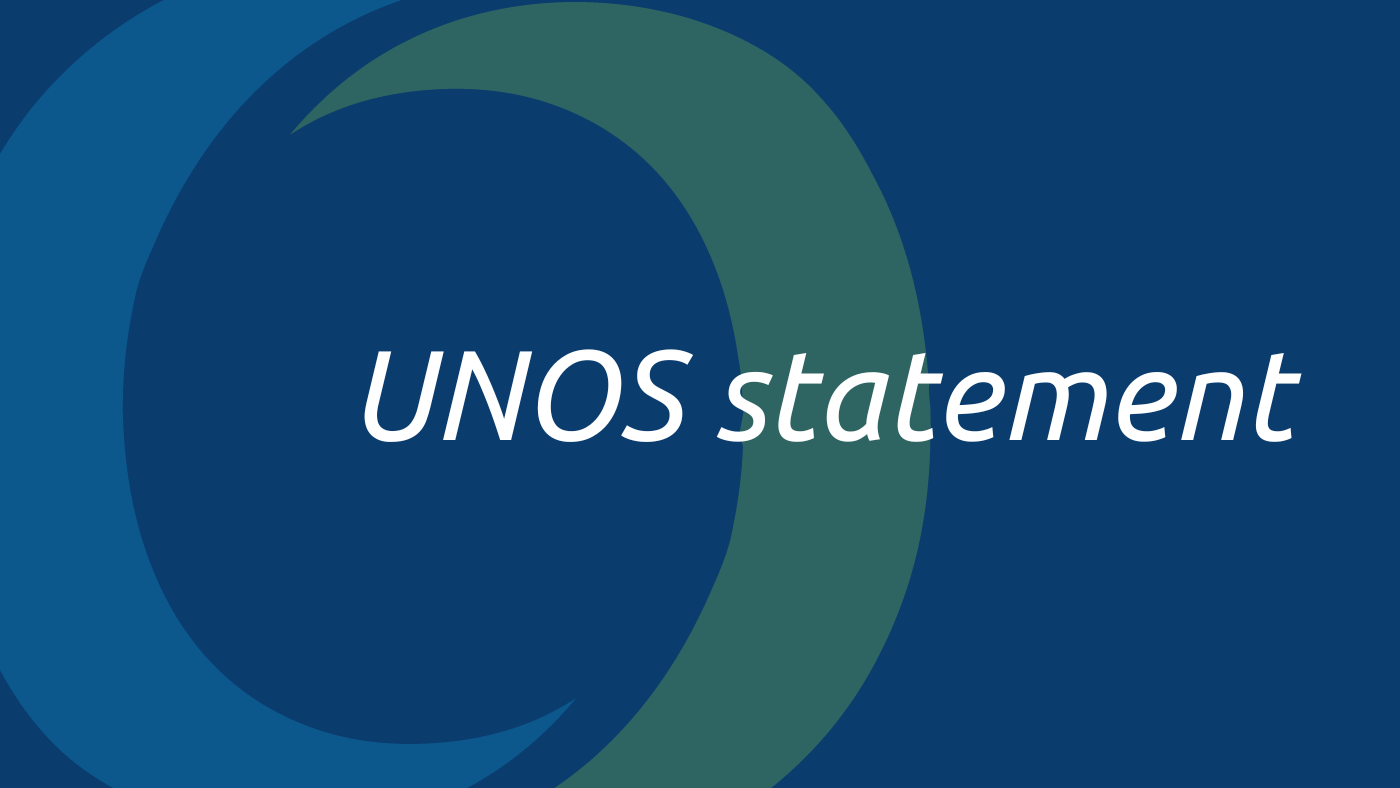Today, the United Network for Organ Sharing was pleased to be able to share our expertise and experience with Congress, with the goal of strengthening our nation’s donation and transplant system.
Dr. Maureen McBride, CEO of UNOS, testified before the House Committee on Energy and Commerce Oversight & Investigations Subcommittee about the critically important work of UNOS in supporting the Organ Procurement and Transplantation Network (OPTN) under federal contract with the Health Services and Resources Administration (HRSA). Last year, more than 48,000 life-saving transplants were performed in the United States, another record year of transplants for the OPTN with the support of UNOS.
Today’s hearing reaffirmed that there is much work needed to strengthen the system. McBride was grateful to have the opportunity to share UNOS’ proposed reforms, which are based on our organization’s decades of experience supporting the OPTN. She urged Congress to work with UNOS, HRSA, the Centers for Medicare and Medicaid Services (CMS) and the organ donation and transplant community to ensure a safe, fair and effective system for patients and donors.
Specifically, McBride called on Congress to require CMS and HRSA to work together to establish a No Wrong Door comprehensive patient safety reporting system. Any patient, family member, or health professional who has witnessed or experienced poor care should have a clear path for reporting their concerns. Since more than 95 percent of hospitals in the U.S. are not OPTN members, CMS and HRSA must work together to close the reporting gap.
In addition to the No Wrong Door reporting system, McBride has recommended three more reforms: implementing automated deceased donor referrals, mandating a national tracking system for donor organs, and migrating the OPTN computer system to the cloud.
UNOS supports efforts to consolidate all aspects of the system under one agency. Currently, different aspects are overseen by HRSA and CMS. This fragmented oversight has led to confusion and inconsistent accountability.
UNOS also urges additional changes that would improve transparency, empower patients, move organs to in-cabin airplane transport, and establish Medicare incentives for transplant hospitals to accept medically complex organs to ensure more donated organs are used.
All of these reforms aim to ensure there is public trust in the system, close critical gaps in oversight, improve patient outcomes, and make sure that the system is centered on the needs and voices of patients and donor families.
UNOS supports all good-faith efforts to strengthen the system. It’s worth noting that UNOS has no direct role in patient care, it does not direct operations at hospitals, it does not work with families to secure organ donations, it has no influence on patient care protocols, and it does not make determinations of death or direct medical decisions. UNOS also does not create or approve policies for the OPTN.
Today’s hearing highlighted that collaboration and communication among key stakeholders in the community and the federal government are critical. UNOS is encouraged by Congress’ oversight and engagement to ensure this collaboration is happening. There’s work to be done, and UNOS will continue to serve as a key partner in reform.
Read McBride’s written testimony
About UNOS
UNOS is a nonprofit on a mission to save and transform lives through research, innovation and collaboration. UNOS builds on its experience and expertise to strengthen organ donation and transplantation systems and enhance public health. The nonprofit helps people live life without limits by developing products and services, conducting data-driven research and analysis, providing expert consulting services, advocating for reforms to help patients, and partnering to drive a greater impact.

